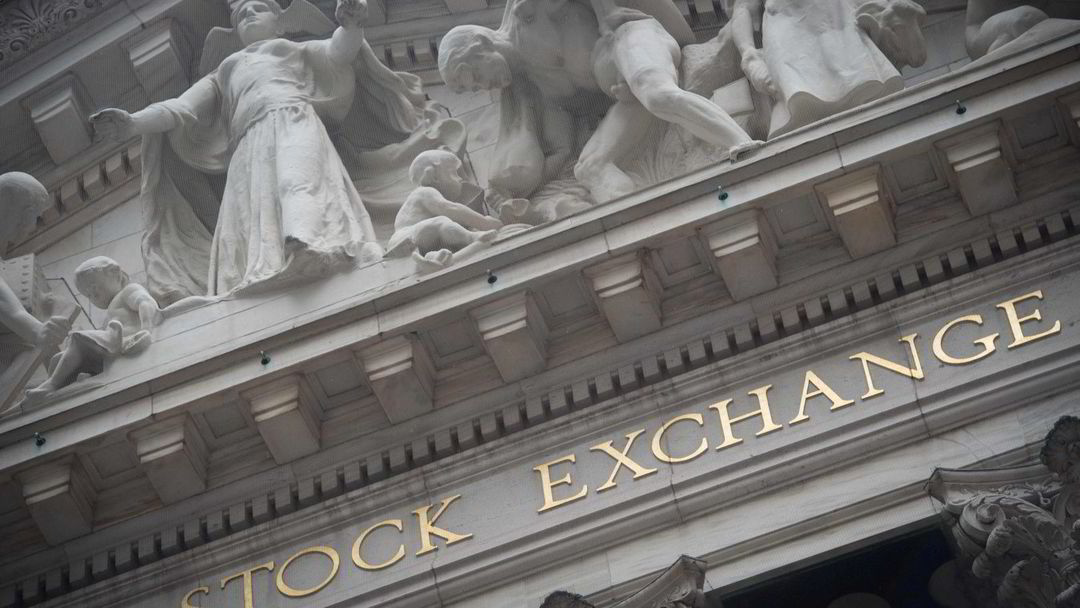This is how the leading American stock market indices looked at 10 p.m. Norwegian time on Thursday:
- The Dow Jones Industrial Average, which is made up of 30 hand-picked stocks deemed important, rose 1.0 percent
- The Nasdaq Composite, which is dominated by technology companies, rose 0.7 percent
- The collective index S&P 500, which consists of 500 of the largest listed companies in the US, rose 0.7 percent
Tesla shares fell nearly six percent after the company held a capital market day on Wednesday. Several media point out that the market was probably disappointed by the absence of the big news.
CEO Elon Musk spent part of the time talking about the environment and the challenges facing humanity. Musk confirmed that Tesla plans to build a new factory in Mexico, but offered few details on the progress plan. According to the Mexican authorities, Tesla will invest five billion dollars.
Tesla CEO Drew Baglino said the goal is to produce 20 million electric vehicles a year by 2030. In total, Tesla has produced four million cars since the first model was launched over 15 years ago.
Holds on to quarters
On Thursday evening, several members of the US central bank spoke out, according to the Wall Street Journal. Among other things, Atlanta’s central bank governor Raphael Bostic did not say that he still has faith in raising interest rates at the same pace as before, i.e. 0.25 percentage points, according to Wall Street.
– To proceed slowly, but surely, is the most appropriate thing to do now, he said Bostic.
At the same time, a member from Washington, Christopher Waller, stated that he wants to see data showing moderation in inflation and the labor market, but wishful thinking is not a substitute for hard evidence in the form of economic reports.
– Having seen promising signs of progress, we cannot risk a revival of inflation, he stated.
The ten-year interest rate is four percent
Market interest rates continue their strong rise in both Europe and the US, partly as a consequence of higher than expected inflation in the eurozone. Core inflation ended at 5.6 per cent, while it was expected to be 5.3 per cent.
It is now priced in that the European Central Bank (ECB) will raise the key interest rate to over four percent from the current level of 2.5 percent, as the market had increasingly feared earlier this week, after inflation rose more than expected in both France, Spain and Germany in February.
The interest rate on US government bonds with a maturity of ten years rises markedly to close to 4.07 per cent on Thursday, thus approaching the peak level of 4.3 per cent from last autumn. During the last month, the ten-year interest rate has risen from 3.4 per cent.
The two-year interest rate, which is particularly sensitive to changes in expectations for the US central bank’s key interest rate, has risen from 4.1 to 4.9 per cent over the past month. The two-year interest rate is thus at its highest level since 2006.
– Jumps and bounces
Such interest rate movements have become a kind of “new normal” in the past year, but historically they are violent. Thomas Eitzen, head of credit analysis at SEB, believes that much of the explanation lies in volatile and conflicting key figures.
– I don’t really understand much of what is happening. If you had asked me six months ago what would happen to the stock market if interest rates rose so much, I would probably have said that it would fall.

Head of credit analysis Thomas Eitzen at SEB. (Photo: Elin Høyland)
A fundamental difference is that at the time the market feared high interest rates and recession, while now it fears higher interest rates and no recession, Eitzen points out.
– In that sense, one can defend the pricing of risk assets such as shares, but then the question is whether the market’s analysis of interest rates, inflation and the economy is correct, says Eitzen.
The pandemic, with the accompanying economic support packages that were provided, disrupts the models and creates a weaker basis for comparison than normal.
– The data for how the economy is doing jumps and bounces a lot. Economists and other pundits are unable to understand whether the economy is weak or strong. I have no idea, but I find it strange that the stock market says it is strong.(Terms)Copyright Dagens Næringsliv AS and/or our suppliers. We would like you to share our cases using links, which lead directly to our pages. Copying or other forms of use of all or part of the content may only take place with written permission or as permitted by law. For further terms see here.
